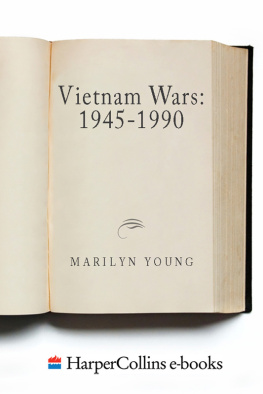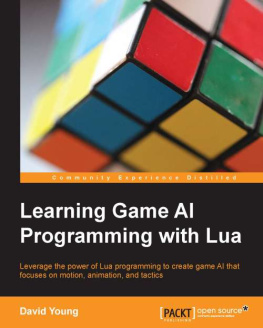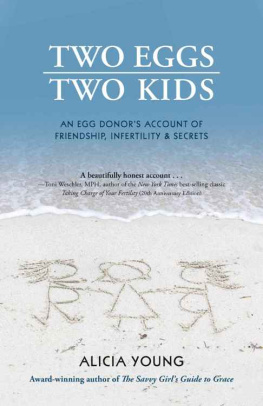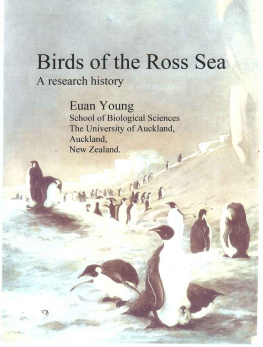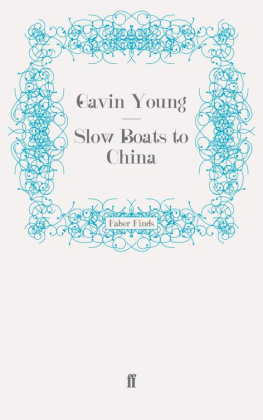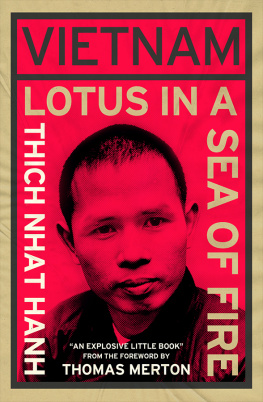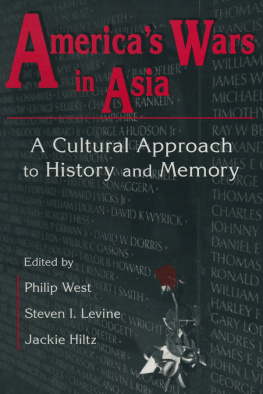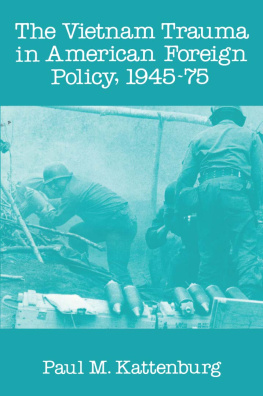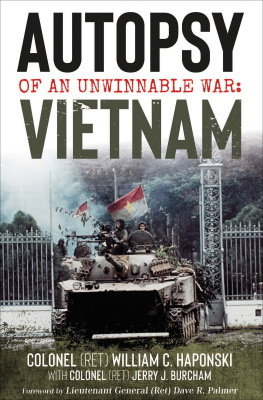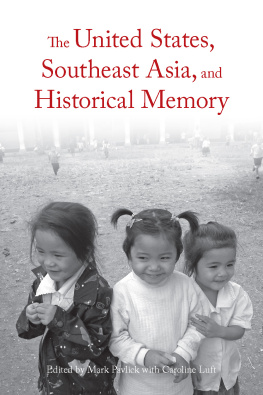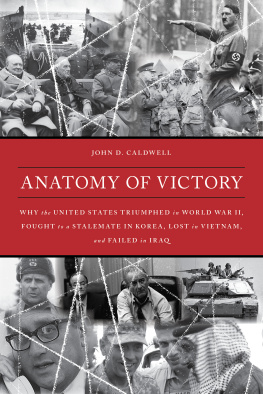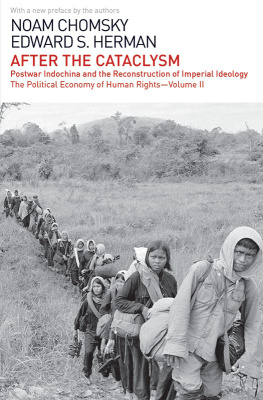Young - The Vietnam wars, 1945-1990
Here you can read online Young - The Vietnam wars, 1945-1990 full text of the book (entire story) in english for free. Download pdf and epub, get meaning, cover and reviews about this ebook. City: New York, United States--Vietnam., Vietnam, Vietnam--United States., United States., Vietnam, year: 1991, publisher: HarperCollins, genre: Politics. Description of the work, (preface) as well as reviews are available. Best literature library LitArk.com created for fans of good reading and offers a wide selection of genres:
Romance novel
Science fiction
Adventure
Detective
Science
History
Home and family
Prose
Art
Politics
Computer
Non-fiction
Religion
Business
Children
Humor
Choose a favorite category and find really read worthwhile books. Enjoy immersion in the world of imagination, feel the emotions of the characters or learn something new for yourself, make an fascinating discovery.
- Book:The Vietnam wars, 1945-1990
- Author:
- Publisher:HarperCollins
- Genre:
- Year:1991
- City:New York, United States--Vietnam., Vietnam, Vietnam--United States., United States., Vietnam
- Rating:3 / 5
- Favourites:Add to favourites
- Your mark:
- 60
- 1
- 2
- 3
- 4
- 5
The Vietnam wars, 1945-1990: summary, description and annotation
We offer to read an annotation, description, summary or preface (depends on what the author of the book "The Vietnam wars, 1945-1990" wrote himself). If you haven't found the necessary information about the book — write in the comments, we will try to find it.
Abstract: A history of the war the United States fought in Indochina
Young: author's other books
Who wrote The Vietnam wars, 1945-1990? Find out the surname, the name of the author of the book and a list of all author's works by series.
The Vietnam wars, 1945-1990 — read online for free the complete book (whole text) full work
Below is the text of the book, divided by pages. System saving the place of the last page read, allows you to conveniently read the book "The Vietnam wars, 1945-1990" online for free, without having to search again every time where you left off. Put a bookmark, and you can go to the page where you finished reading at any time.
Font size:
Interval:
Bookmark:

: The Fate of OSS Agent 19 (19451946)
: The Thirty-Year War Begins (19461954)
: A Pause Between the Wars (19541956)
: The War for the South Begins (19561962)
: The Fall of Diem (1963)
: Taking the War North (19631964)
: A Wider War (19641965)
: The American Invasion of South Vietnam (19651966)
: An American War (19661967)
: The War in America (19651967)
: The Cross-Over Point (19671968)
: Bloodbaths (19681971)
: A Savage Retreat (19711973)
: Their War (19731975)
: After the War (19751990)
Permissions and illustration credits on .
A hardcover edition of this book was published in 1991 by HarperCollins Publishers.
THE VIETNAM WARS 19451990. Copyright 1991 by Marilyn B. Young. All rights reserved under International and Pan-American Copyright Conventions. By payment of the required fees, you have been granted the non-exclusive, non-transferable right to access and read the text of this ebook on-screen. No part of this text may be reproduced, transmitted, down-loaded, decompiled, reverse engineered, or stored in or introduced into any information storage and retrieval system, in any form or by any means, whether electronic or mechanical, now known or hereinafter invented, without the express written permission of HarperCollins ebooks.
First HarperPerennial edition published 1991.
The Library of Congress has catalogued the hardcover edition as follows: Young, Marilyn Blatt.
The Vietnam Wars 1945-1990 / Marilyn Young.1st ed.
p. cm.
Includes bibliographical references and index.
ISBN 0-06-016553-7
1. Vietnamese Conflict, 19611975. 2. VietnamHistory19451975. 3. VietnamHistory1975 4. United StatesForeign relationsVietnam. 5. VietnamForeign relationsUnited States. I. Title.
DS557.7.Y678 1991
959.7043dc20 90-55560
ISBN 0-06-092107-2 (pbk.)
EPub Edition FEBRUARY 2014 ISBN: 9780062326966
13 14 15 RRD C 50 49 48 47 46 45 44 43
W HY ARE WE IN VIETNAM ? Through a decade in which the United States was divided perhaps more deeply than at any other time since the Civil War, the question became a refrain, the inquiring voices more and more discordant and demanding. In the end, Why are we in Vietnam? was no longer a question but an accusation addressed beyond the war to the nations very identity.
There were many explanations offered and these will unfold over the course of the book. At first we were in Vietnam for the sake of stability in France, which held the American plan for European security and recovery hostage to its colonial war in Indochina. We were also there to provide Japan with Southeast Asian substitutes for the China trade the United States had embargoed. In the largest sense, the United States was in Vietnam as a crucial part of the enterprise of reorganizing the post-World War II world according to the principles of liberal capitalism.
Each of these explanations explains something, and together they add up to a pretty fair account of things; indeed, in retrospect, the war does not seem so inexplicable after all. But over the years of contention, the question came to demand more than an explanation, a justification. When an interviewer posed it late in the war to former national security adviser Walt Rostow, he fumed: Are you really asking me this goddamn silly question? Though the question was hardly silly, the interviewer may not have been really asking it, for by then those who so queried public officials were sure they knew the answer: There was no conceivable justification for the horrors daily inflicted on and suffered in Vietnam.
While this book discusses the standard explanations and justifications, it interprets the why as how. How did we get to Vietnam? How did we keep expanding the war, and how did we get out? Paralleling the development of the question Why are we in Vietnam? from inquiring about motives to denouncing the acts of war, I have come to believe that in the daily, weekly, monthly, yearly progress of the war lay many of its most decisive reasons and irrationalities.
Official justifications for the war changed with the political season, although the climate was always that of the Cold War. As I was finishing this history of the VietnamAmerican war, the Cold War was, astonishingly, ending. There is no way to know what this will mean for the next era of world history. But events in the summer of 1990 suggest that peace with the Soviet Union has not necessarily lessened the American propensity to wage war elsewhere. The Iraq crisis is the postCold War eras first approach to war. It would be simply foolish, as this book goes to press in August 1990, to attempt any analysis of the crisis or to speculate about its outcome. But in its progress it has already raised old spectres.
Why are we in the Middle East? As of now, President Bush and his administration have told us that we are there to control the source of our oil and through that to protect our very way of life. They have invoked Munich and transcendent principles of territorial integrity. I do not suggest any comparison between Southeast Asia and the Middle East or between Vietnam and Iraq. But we had better look very closely at how we approach this or any other intervention. Watching the Iraq crisis unfold as I read the galleys of this book seemed to provide it with a new, harsher, and unwanted conclusion: that war continues to be a primary instrument of American foreign policy and the call to arms a first response to international disputes.
We have been at war since the end of World War II. The Vietnam War itself has not ended. As of this writing, the U.S. still declares Vietnam an enemy nation, prohibits or restricts travel, trade, humanitarian aid, and exchange visits by U.S. citizens, and exerts heavy pressure on its allies to discourage any constructive relations with Vietnam. The ongoing war in Cambodia that came to an uneasy truce in July 1990 received U.S. support throughout. One way the Vietnam war might at last end, and the postCold War peace begin, would be for an American president to acknowledge, as a Soviet foreign minister did with respect to Afghanistan, that the United States invaded Vietnam against our stated values and ideals and that it did so secretly and deceptively, fighting a war of immense violence in order to impose its will on another sovereign nation. Otherwise only the name of the country changes, and Americans will continue to ask, Why are we in Vietnam?
Marilyn B. Young
Union Village, Vermont
August, 1990
T HIS BOOK is a work of synthesis that could not have been attempted without the extraordinary work of scholars and writers on both the history of the American war and the history of the Vietnam war of resistance. My narrative has relied heavily on the published work of William Conrad Gibbons and the staff of the Congressional Research Service, James William Gibson, George Herring, James P. Harrison, George Kahin, Huynh Kim Khanh, Ngo Vinh Long, David Marr, Edwin E. Moise, Gareth Porter, Jeffrey Race, and Christine Pelzer White, and I gratefully acknowledge them here. In the history of the Vietnam-American war, the work of journalists has been as important as that of scholars, and the books of Nayan Chanda, Gloria Emerson, David Halberstam, Seymour Hersh, Arnold Isaacs, Jonathan Schell, William Shawcross, and Neil Sheehan have been invaluable.
In addition to their published work, conversation and correspondence with Noam Chomsky, David Hunt, George Kahin, Don Luce, Ngo Vinh Long, Gareth Porter, Jayne Werner, Christine Pelzer White, and Howard Zinn has deepened my understanding of Vietnam and the United States. A trip to Vietnam in January 1988 made concrete what had been until then abstract: Vietnam as a real and wounded country. I want to thank Don Luce, who led the trip, and my fellow travellers, especially Len Ackland, Michael Call, Geoffrey Gates, Carlie Numi, Rick Pyeatt, and Hugh Swift, whose sensitivity to what we were seeing and readiness to talk with me about their wartime experiences in Vietnam brought past and present powerfully together.
Font size:
Interval:
Bookmark:
Similar books «The Vietnam wars, 1945-1990»
Look at similar books to The Vietnam wars, 1945-1990. We have selected literature similar in name and meaning in the hope of providing readers with more options to find new, interesting, not yet read works.
Discussion, reviews of the book The Vietnam wars, 1945-1990 and just readers' own opinions. Leave your comments, write what you think about the work, its meaning or the main characters. Specify what exactly you liked and what you didn't like, and why you think so.

